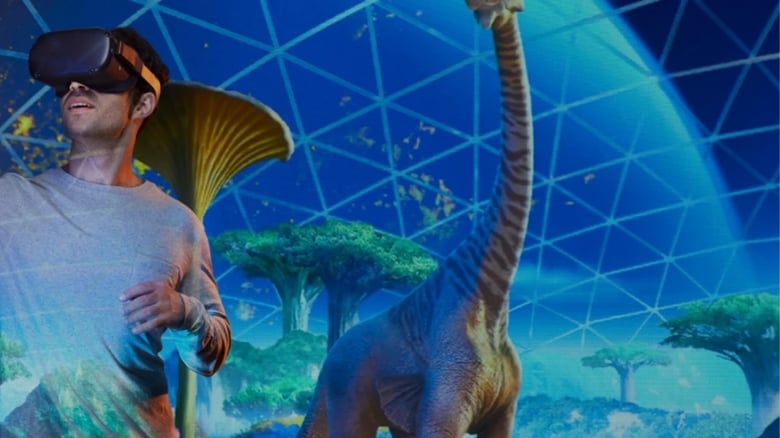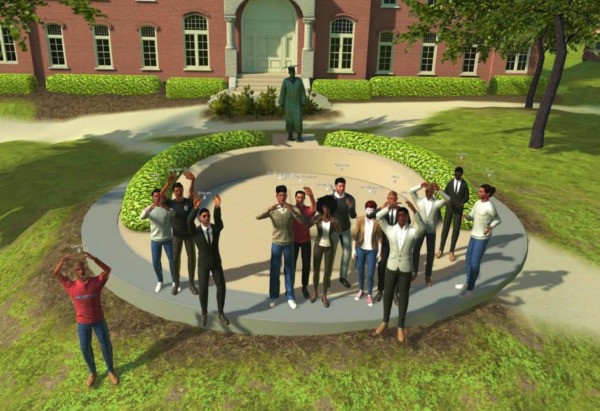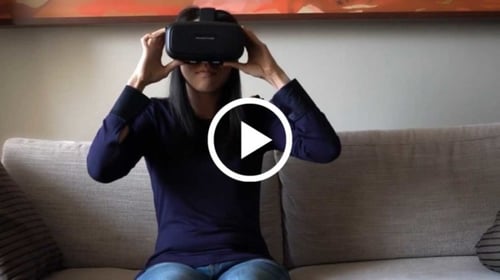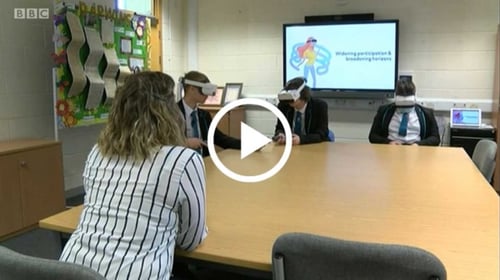VR, as a learning medium, has been shown to increase memorability (Allcoat, 2018), boost emotional engagement (PWC, 2020) and even reduce unconscious bias (Salmanovitz, 2018). Moreover, with the ever-decreasing cost of headsets, VR promises to democratise learning by granting previously excluded audiences the opportunity to learn the essential but often privileged skills. Skills that enable us to successfully navigate through the world of work.
In short, VR learning is paving the way for Education’s reinvention... But where are we today?
The 5 case studies below shed light on some of the current best uses of VR in higher education today.
1. Biology - Arizona State University - Dreamscape Learn

© ASU Arizona State University
“Dreamscape Learn” is the ASU’s new virtual reality immersive biology curriculum built in partnership with Dreamscape Immersive. Through the experience, students are transported light-years away to an orbiting intergalactic wildlife sanctuary full of endangered life forms. There, they get to explore, observe and practise hands-on procedures otherwise impossible to recreate in the classroom
Michael Angilletta
Evolutionary Biologist
It’s not difficult to see how Hollywood-level production can bring back curiosity and delight into learning. As Michael Crow, the ASU President, puts it “We are coming full circle and getting back to how we were naturally meant to learn — how we learned for thousands of years — with more emotional attachment.”
2. Virtual Campus for time/space-bending classes - Morehouse College - Victory XR

© VictoryXR
Biology, History and Inorganic Chemistry - are the first 3 VR classes that Morehouse College, the alma mater of Martin Luther King Jr and Spike Lee, will offer to its students. And by using the Engage Platform students will be able to take these classes on their campus, however, only in the virtual world. These three classes were created by Victory XR and designed to support Oculus Quest 2 headsets, so students could remotely attend and collaborate on group projects
Lorem Ipsum
Lorem Ipsum is simply dummy text of the printing and typesetting industry.
Not quite Ready, Player One’s school yet but certainly a leap ahead of traditional teaching when it comes to student engagement.
3. Sexual Harassment in Higher Education - IMT - Reverto VR

© REVERTO
In France, 1 in 10 students has been a target of sexual harassment, 1 in 20 is a survivor of rape. Lyon-based DEI-specialised VR studio Reverto has worked with IMT (Institut Mines Télécom) students to co-write the script and act in this impactful 15 minutes 360 experience. Throughout the module, students will experience several harassment scenarios from the perspective of the target and witness complex dynamics of coercion and peer pressure.
The experience is designed to drive empathy by switching perspectives then empower students to learn to identify and safely challenge discriminatory and violent behaviours. Several French schools and universities have already signed up to deploy the training in the next few months.
4. Career Experiences - multiple colleges and schools - DiscoverReality

© The EBP
Did you know what you wanted to do when you were 16? Did you even care? Working with dozens of local employers as diverse as the police and fire service, construction, retailers. hospitality brands or even the RAF Red Arrows, Discover Reality has created an extensive library of 360 degree videos working as ‘immersive work experiences’. The EBP, the organisation behind Discover Reality, provides headsets to schools to allow young people to explore different career pathways, get excited and ultimately make more informed decisions about their future studies.
Discover Reality has already reached over 2,000 students across 30+ schools. Not only were the students much more engaged than during a traditional career guidance intervention (93% recommendation rate) but a significant portion reevaluated their priorities and made new requests to seek information on alternative but more aligned careers.
5. Job interview training - multiple universities and colleges - Bodyswaps
Bodyswaps’ Job Interview Simulator aims to equip students with the tools and confidence to excel at job interviews. Beyond actual interview practice, the 4 modules cover topics such as managing anxiety through breathing and posture, knowing your strengths and non-negotiables and answering any question with the CAR technique. Currently being piloted by 10+ institutions in the UK, US, France and Canada, the results so far show that over 75% of students report an increase in confidence and 85% would recommend the training experience to their peers.
As improving students’ employability becomes mission-critical for institutions, VR becomes a relevant option for Career Centers and Student Success teams to offer continuous personalised training to students and set them up for success.






.png?width=377&height=184&name=Meta%20preview%20(3).png)
